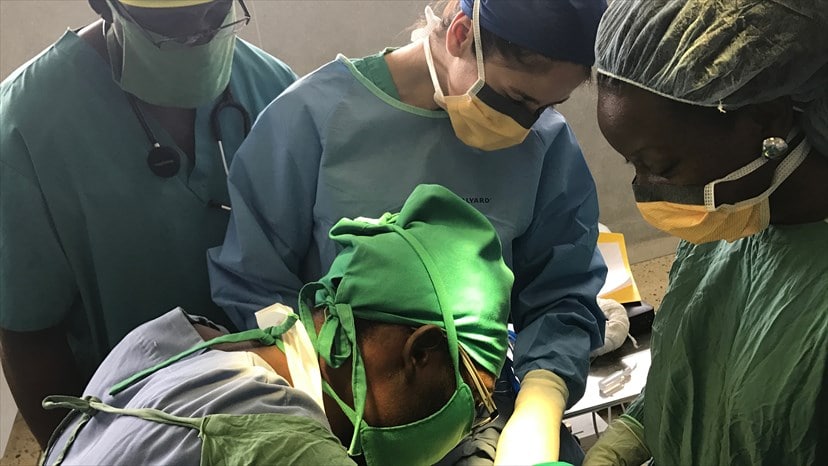Every household requires a plumber’s services; of course, as demeaning as it may seem, plumbing is a gratifying career.
I have heard several folks say several things to malign this profession, but I could tell you, you’d be raking in large sums of bucks each passing day working as a plumber.
In this article, you’ll discover the easiest hacks for becoming a plumber quickly.
As I stated earlier, plumbing is a very lucrative job, and a great skill to acquire that can take you to any desired level.
Also, let me surprise you; plumbing is a professional job, and just as people study to become doctors, so do people also study to become plumbers and successful ones. Some of the best-paying jobs are in unusual specialties since there is less competition.
As evidenced by survey data, licensed professionals tend to remain in the profession for their entire careers. Many even continue part-time, well past the usual retirement age, helping the next generation by providing apprenticeships and learning.
Do follow me closely to learn how to be successful as a plumber in less than one year. But meanwhile, here’s the table of content below for an overview of what to expect in this article.
Table of contents
- WHO IS A PLUMBER?
- WHAT DOES A PLUMBER DO?
- IS PLUMBING A PROFESSION?
- SPECIALIZATIONS IN PLUMBING
- WHERE DO PLUMBERS WORK?
- HOW MUCH DO PLUMBERS MAKE?
- WHAT IS THE JOB PROJECTION FOR PLUMBERS?
- SKILLS, LICENSING, AND CERTIFICATION
- CAN I BECOME A PLUMBER IN LESS THAN ONE YEAR?
- HOW MUCH DOES IT COST TO BECOME A PLUMBER?
- WAYS OF BECOMING A PLUMBER: FULL GUIDE
- WHICH ARE THE BEST PLUMBING LICENSE SCHOOLS?
- FREQUENTLY ASKED QUESTIONS
- CONCLUSION
- AUTHOR’S RECOMMENDATION
- REFERENCES
WHO IS A PLUMBER?
Let me start by explaining what the term plumbing means: Plumbing is any system that conveys fluids for a wide range of applications within and outside a building. Plumbing uses pipes, valves, fixtures, tanks, and other apparatuses to convey fluids.
Having explained the term ‘Plumbing,’ who then is a plumber? A plumber is any person trained to install and maintain pipes in our homes and business.
It can also refer to a person who installs and repairs piping, fixtures, appliances, in connection with water supply, drainage systems, e.t.c, both in and out of buildings.
Plumbers have several tasks they do. They are usually involved in hands-on work. Sometimes they are found drafting blueprints and helping make the installation process more efficient.
Plumbing is unarguably a profession with an extensive number of possible career paths.
WHAT DOES A PLUMBER DO?
Someone interested in becoming a plumber is required to know that working as a residential plumber is only a small portion of the available career opportunities for an experienced professional plumber.
Plumbers often work alongside architects, as they can contribute valuable knowledge about the best positions for wall passage and fixture locations, saving the architect valuable time and avoiding expensive mistakes.
An expert in plumbing is usually aware of certain building regulations and safety standards and works to make sure these standards are upheld. Legal expertise can also be an aspect of plumbing, since the laws regulating this trade vary depending on where you live, and can be difficult for a layperson to understand.
Testing pipes for leakage using air pressure and other gauges, and also the ability to construct new pipe systems by cutting, fitting, measuring, and threading pipes are some of the more involved aspects of plumbing.
IS PLUMBING A PROFESSION?
I will give an answer to this question but before I do so, what comes to your mind when you hear the word “profession?”
A profession is any occupation, practice, or vocation requiring mastery of a complex set of knowledge and skills through formal education and /or practical experience.
Okay! Going back to the question, “Is plumbing a profession?” Yes, Plumbing is a profession because it requires a certain level of education, skill, or training, and also adheres to codes of conduct and ethical standards.
Let us quickly look at some of the areas of specialization in plumbing.
SPECIALIZATIONS IN PLUMBING
Similar to other professions that have various areas of specialization, a plumber also has various fields where he can root his career.
Here below are some of the known areas of specializations in Plumbing;
- Pipelaying
- Pipefitting
- Steamfitting
#1. PIPELAYING
Plumbers who specialize in this area are known as pipelayers. Here, they install pipes needed for the plumbing system. Mostly they fix drainage for storms or water mains.
In this specialization, work is very strenuous because they also have to do with digging for pipes and grading the trenches where the pipes will be placed.
The pipelayers secure the pipes by using special glue, welding, or cementing them firmly in place.
#2. PIPEFITTING
Plumbers who specialize in this area are known as pipefitters. They are in charge of large industrial plumbing projects. They also install and maintain heating and cooling piping systems in manufacturing, industrial, and commercial settings.
#3. STEAMFITTING
The plumbers in this area are known as steamfitters. They install piping systems that move steam under high pressure in any setting where heat and electricity are generated.
WHERE DO PLUMBERS WORK?
A day in the life of a plumber might include fielding midnight phone calls from frantic clients with a broken pipe. The workplace of a plumber may be anywhere. He may be involved with working for an architectural firm or on a construction site.
Many plumbers are self-employed while some work for small businesses employing less than ten people. Some might also be found working for larger entities or the government.
Many large buildings, school districts, hotels, college campuses, airports, churches, and municipal buildings employ their own plumbing staff too.
Even motor vehicles, such as commuter buses, recreational vehicles, large airplanes, yachts, and cruise ships all have installed plumbing systems and will surely need repairs and maintenance from time to time.
Interestingly, job security in this profession tends to be good because people will always need plumbing services.
In a nutshell, anywhere that has a water system is a good workplace for a plumber. Truth is, when the need arises, he’ll surely be involved.
HOW MUCH DO PLUMBERS MAKE?
The median annual pay for a plumber; pipelayers, pipefitters, and steamfitters in the United States was $49,140 in 2012. The lowest ten percent earned less than $29,020 that year, and the top ten percent made more than $84,440.
This is to say that, the average salary for plumbing workers is $21.94 per hour.
Earnings depend largely on the level of one’s experience and the plumbing specialty. Plumbers employed by their local government make about $20 per hour, while plumbers working in natural gas distribution take home an average of $26.27 per hour.
A recent publication by the Bureau of Labor Statistics has shown that the median salary for plumbers, pipefitters, and steamfitters was $55,160 in May 2019.
WHAT IS THE JOB PROJECTION FOR PLUMBERS?
According to a report on BLS, the employment of plumbers, pipefitters, and steamfitters is projected to grow by 14 percent from 2018 to 2028 and the annual salary from $55,160 to $68,200.
This shows that plumbing is a financial breakthrough career to embark on.
SKILLS, LICENSING, AND CERTIFICATION
SKILLS
Skills in plumbing has to do with the various qualifications acquired during the course of training to become a plumber. In plumbing, there are majorly three areas of qualifications which include;
- Master plumbers
- Journeyman
- Apprenticeship
#1. Apprentice
As a plumber apprentice, you’ll study under a journeyman or master plumber or even both.
Most apprenticeship programs are for an average of 2,000 on-the-job hours. During this time, you’ll also have 246 classroom hours.
Apprenticeships take 2-6 years to complete.
The most common way to enter an apprenticeship is through a plumbers union. Another way is studying under a licensed plumber.
#2. Journeyman
A journeyman plumber has completed the required apprenticeship program and can practice the trade on his or her own.
A licensing exam must be passed to become a journeyman plumber. The licensing exam tests the knowledge and skills you have learned throughout the apprenticeship program.
There are continuing education requirements and licensing exam renewals required. Some states expect this yearly, while others may only require renewal every three to five years.
#3. Master Plumbers
To become a master plumber, you must first work for two consistent years as a journeyman.
You must also take an exam and pass both the written and practical sections of it.
Once you’ve passed and are a master plumber, you can take supervising roles. You are also qualified to plan and design entire plumbing systems in addition to your previous skills.
LICENSING AND CERTIFICATION
The Federal Government does not regulate licensing for plumbers. They are on a state-by-state government level. Most states have some sort of licensing requirement for plumbers.
LICENSING: There is no standard when it comes to licensing for plumbers. Each state has its own rules and regulations. Most states do require 2-5years of experience before taking the plumbing licensing exam.
CERTIFICATION: Certifications are not requirements, but they help plumbers advance career-wise. Once the plumber has completed the apprenticeship and has successfully gotten their license, they will be eligible to sit for the certification exams.
CAN I BECOME A PLUMBER IN LESS THAN ONE YEAR?
Really! Less than one year? “NO,” You can’t become a plumber in less than one year!
Generally speaking, attending a Community College in order to be certified as a plumber will require up to two years aside from undergoing an apprenticeship training which requires more than two years.
You might now be asking, “How long does it take to get certified in Plumbing?
Completing your certification in Plumbing will usually take around 3-4 years to complete, depending on whether you study part-time or full-time.
HOW MUCH DOES IT COST TO BECOME A PLUMBER?
The cost of becoming a plumber depends on the type of program one intends to enroll in. The most popular program for aspiring plumbers is an apprenticeship. However, many also choose either a certificate or associate’s degree program to begin their plumbing training.
All programs lead to an apprenticeship and we are going to look out for the various types of plumbing programs, the cost for education, and course length in the lines to come.
The table below shows the various types of programs, the cost of education, and course length.
| Type of Program | Cost of Education | Course Length |
| Certificate Program | $1250 – $3000 | 1 year + apprenticeship |
| Associate’s degree | $3000 – $23000 | 2 years + apprenticeship |
| Apprenticeship | $0 – $1000 | 4-5 years |
Additional costs: One should expect other costs like books, tools and uniforms which require extra money.
WAYS OF BECOMING A PLUMBER: FULL GUIDE
If you have been following me through this journey you should have learned all it requires to become a plumber at this point. I have answered enough questions to guide you through your journey of becoming a plumber.
Here below is a summary of how to become a plumber. You can look through it.
To become a plumber;
- You must be a minimum age of 18
- You must have either a High School Diploma or GED
- You will have to pass a basic math test
- You will have to have a clean drug test
- Receive training at either a trade school or community college program
- Complete an apprenticeship, journeyman, or master plumbing program. This takes about 4-5 years to complete and will give you on-the-job experience and expose you to more plumbing coursework.
- Take the plumbing Licensing Exam and get the Plumbing license in whichever capacity your state requires.
- Certificates are not mandatory, but you can get them to help you advance career-wise.
WHICH ARE THE BEST PLUMBING LICENSE SCHOOLS?
Looking for the best license schools to begin your training? Here below is a list of some of the best schools for plumbing you can find.
LIST OF BEST PLUMBING SCHOOLS
- Northern Marine Community College
- Arizona Western College (AZ)
- Montana State University (MI)
- Elizabethtown Community and Technical College(KY)
- Saint Paul College (MN)
#1. NORTHERN MAINE COMMUNITY COLLEGE
The Northern Maine Community College is an institution that features a student-to-faculty ratio of 12:1, small class sizes, affordable tuition. Also, it has a diverse curriculum that teaches ways of becoming a plumber and heating and refrigeration.
This makes it a robust education option for eager students. You can also enroll for the school’s journeyman-in-training license as a program student.
#2. ARIZONA WESTERN COLLEGE
This college has a larger overall student body than many other schools. Tuition remains affordable despite the wide range of educational opportunities in the construction and technology program.
Students enrolled in the plumbing course have access to many skills, classes for cross-training, electrical, drafting, and welding. Students can earn Occupational Certificates or Associate in Applied Science degrees.
#3. MONTANA STATE UNIVERSITY
The university has a small student-to-faculty ratio of 14:1. This means plumbing instructors can also serve as mentors in a personalized capacity. Students earn an Associate of Applied Science degree after completing the academic coursework and hands-on training designed to prepare one to enter the modern plumbing industry.
#4. ELIZABETHTOWN COMMUNITY AND TECHNICAL COLLEGE
The College’s apprenticeship program allows you to have a unique apprenticeship and educational experience. A variety of skilled trades are available. One needs to complete some basic education courses as well.
This College also offers Continuing Education Courses to Journeyman plumbers and Master plumbers in certain areas positioning it as a valuable resource after officially obtaining the state Journeyman’s license.
#5. SAINT PAUL COLLEGE
This school boasts of a state-of-the-art laboratory for hands-on learning in a safe and supervised environment.
The school’s program emphasizes teaching techniques applicable to industrial, commercial, and residential sites, preparing students for various opportunities in the field.
The school graduates students from this program with a Plumbing Diploma after approximately two years and prepares them for the five-year apprenticeship required for sitting the Minnesota Journeyman Plumber’s exam.
FREQUENTLY ASKED QUESTIONS
It takes two years to complete plumbing training at a trade school. Meanwhile, apprenticeships can take two to five years, depending on the program. Attending a trade school will allow you more time to work while on your study. It will also open a lot of career opportunities for you.
According to a report on BLS, the average salary of plumbers, pipe-fitters, and steamfitters as of May 2019 was $55,160, and the job outlook is projected to grow by 14 percent from 2018 to 2028 and the annual salary from $55,160 to $68,200.
Charlie Mullins is the richest plumber. He left school at 15 and became an entrepreneur, starting his own business, Pimlico Plumbers, in 1979. Now he has a net worth of about £70 million.
A well-experienced plumber who works in a major city can earn over $100,000 annually.
CONCLUSION
The steps listed out here were reviewed and endorsed by an expert. They are the surest way to how to become a plumber.
As a newbie in the field, your first job will most likely be to work as an assistant to an experienced master. You may continue working for the plumber you completed your apprenticeship with, or you can use resources like job boards and local classified ads to find permanent or contract work.
- How To Become A Private Investigator in Michigan In 2024 | Schools, Requirements
- How To Become A Project Manager In 2024: Schools, Salary, & Cost
- How to Become a Train Conductor at Little or No Cost: Licenses, Training, Requirements, Salary, Expert Tips
- How to Become a Private Investigator in California in 2024 | Schools, Requirements
REFERENCES
- https:// career school now.org
- https://corporate finance institute.com
- https://www.smartservice.com
- https://www.bls.gov
Does this article meet your immediate needs? If yes, leave us with a 5-star rating in the Review Box below. If not, leave us an opinion in the comment box to express your concern or ask a question and we will get back to you as soon as possible.
DISCLOSURE: This post may contain affiliate links, meaning when you click the links and make a purchase, we receive a commission.






Comments are closed.